Milingimbi School celebrates 50 years of bilingual education
A school nestled in the quiet peace of an island off the Coast of Arnhem Land is proving bilingual education leads to strong outcomes. Here’s how the community is celebrating.
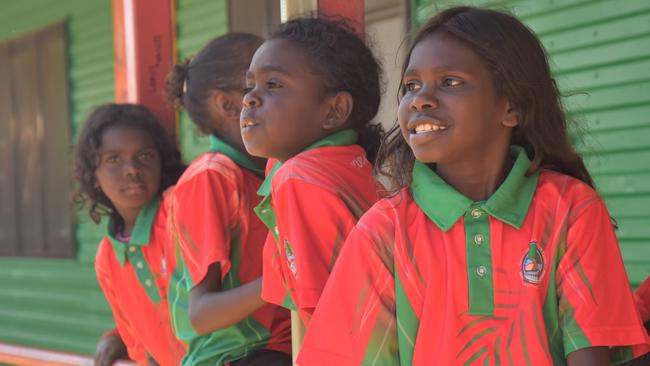
News
Don't miss out on the headlines from News. Followed categories will be added to My News.
“Education is the key to the outer world.”
Gwen Warmbirrirr’s first memories of Milingimbi Community Education Centre were as a young girl attending school.
In its mission days, the school focused on a Western approach to education.
“I learned, working, just reading books in English and doing things in English,” she said.
“When the bilingual education came I was just a student, I was stepping out from my balanda European ways that I’ve learned.”
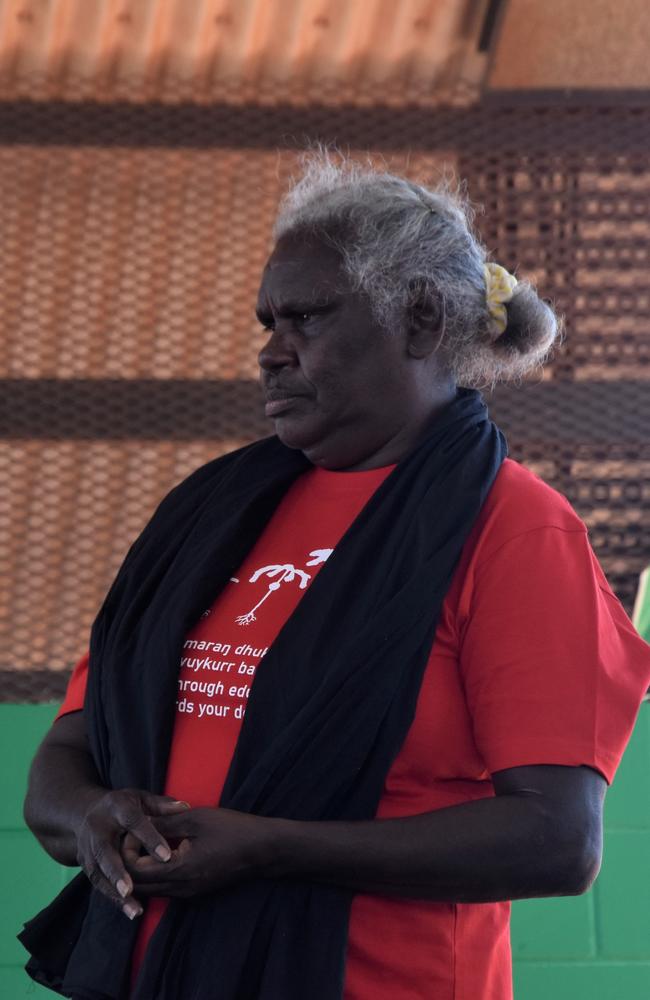
As Milingimbi CEC celebrates 50 years of bilingual education, Ms Warmbirrirr reflects on her role as a teacher for all but one of those years.
The passionate language advocate joined the school’s staff as a young teacher’s assistant in 1974, just one year after the bilingual program launched.
“Before the documentary of Not To Lose You, My Language came, I myself, plus the other assistant teacher, we was about to go to Bachelor College for our first year teacher training course,” she said.
“Principal said to us, ‘Are you going? We’ll be having the people coming out to take photos and camera crews coming out to take people talking about the bilingual language’.
“We stayed on, this was just after the cyclone.”
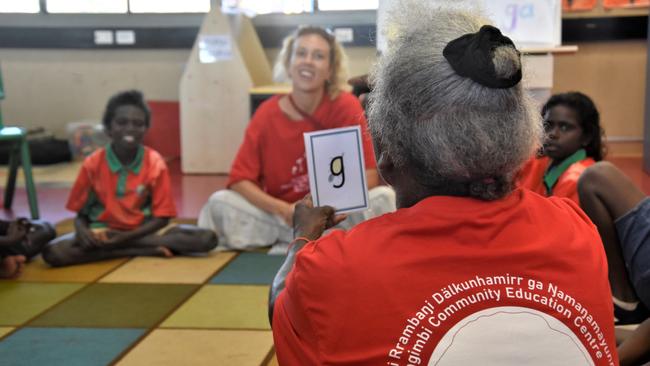
After retiring on December 16 last year, Ms Warmbirrirr said transitioning to life outside the four walls of a classroom was challenging.
“It was like there was something, that part of me … it was broken, it was coming to pieces but I had to hold on to it,” she said.
“I had to let go because the journey for me was really long, on this journey as an educator in this school.”
But the influential educator said she would never stray far from her role as a teacher.
“I still come back and talk to the kids about the education, because education is the key to the outer world, to the balanda world, to the Western world,” she said.
“I have to teach them and tell them about it.”
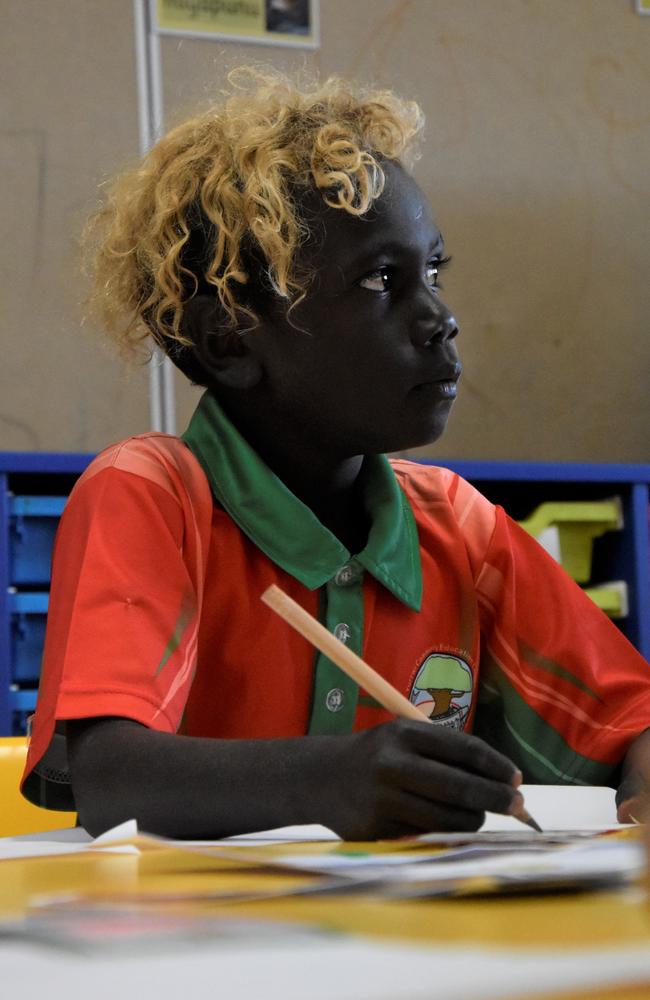
Librarian – and former teacher – Jacinta Burukumalawuy Dhamarrandji said she learned everything about balanda and Yurrwi as a student at Milingimbi CEC.
While she celebrated the 50th anniversary of the school’s bilingual program, Ms Dhamarrandji said she was deeply concerned kids were losing their connection to their identities.
“Earlier this year, I have created inside the library a lot of Milingimbi history based on people’s lives,” she said.
“We need to teach our kids about identity because when I was teaching them in the library, some kids knew where they from, who they are, which tribe they belong to and some didn’t.
“That worries me, that is why I had to create that space in the library – to teach our kids about identity, connection to the land.”
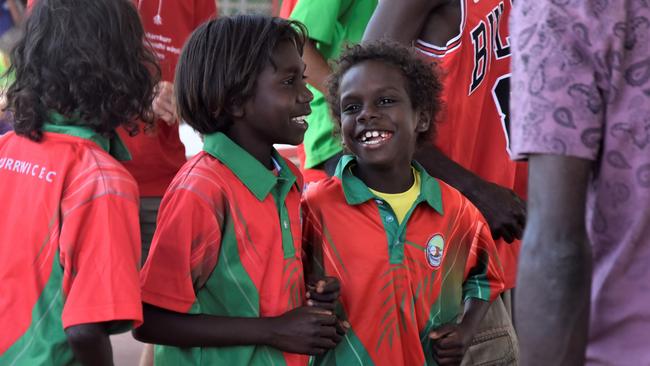
Hundreds of students and teachers – both past and present – were joined in celebrating their school’s achievements.
Tucked away on Yurrwi off the coast of Arnhem Land, the grounds of Milingimbi CEC came alive with joyous music, traditional dancing and tales of the school’s history.
Reflecting on their experience working with two languages – English and Djambarrpuyngu – teachers from across the country shared their “messages from afar”.
“The bilingual program gave me the opportunity to learn about local culture, Country and Yolngu way of life,” a Sydney educator who worked with the school in 2002 said.
“Bilingual programs in this context are imperative. It values local Aboriginal language, culture and customs and ensures they are represented and embedded in our educational system for the best outcome for our kids.”
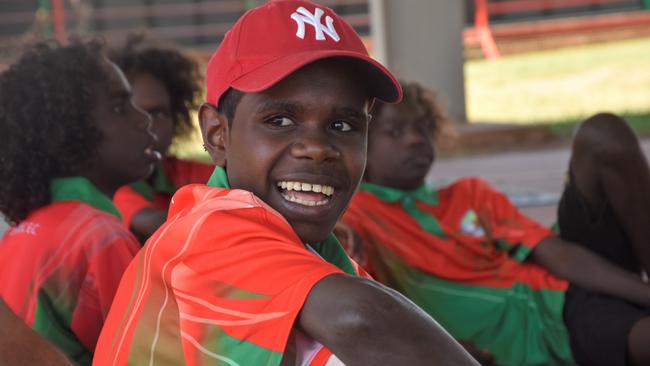
Catie Inches-Ogden recalled her time at the school 48 years ago.
“The people I met and my time at the school helped to change my life in many ways,” the teacher said.
“I learned what it was like to sit in a place where my language was not the dominant one and had the opportunity to hear another voice, another way of living, another culture.
“During that time, I came to realise how important being educated in one’s own tongue is, to acknowledge the importance of language and culture and how important bilingual education is.”
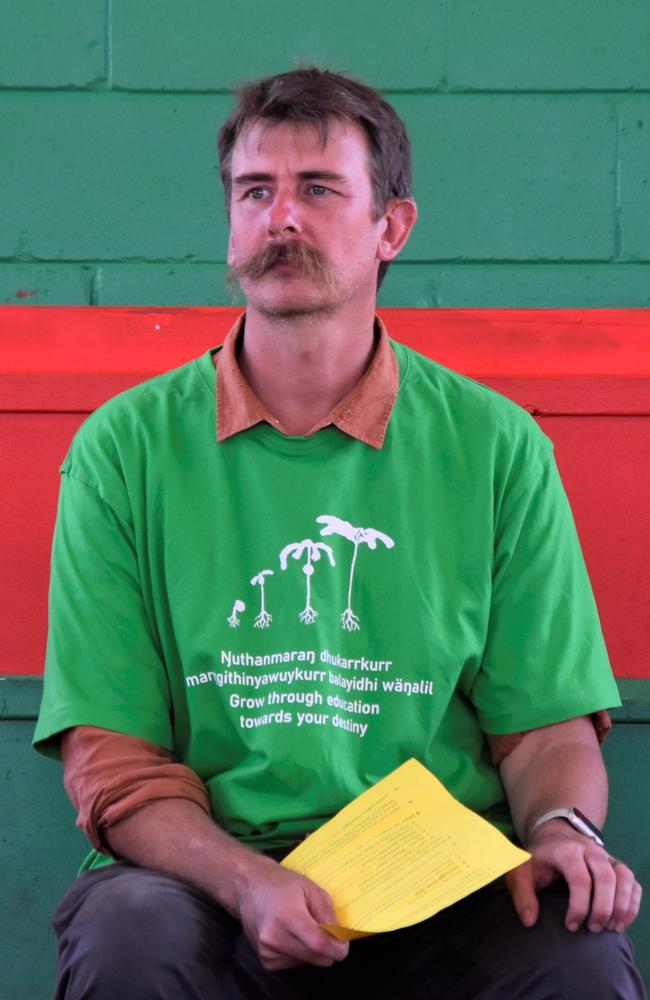
Principal Adam Dicks said the first 50 years of bilingual education set a “strong foundation” for the next 50.
He said the foundation was particularly important to him as he helps raise the next generation of Milingimbi leaders and educators.
“For me, it’s a new licence to bring in the culture and use something the kids already have a grasp on,” he said.
“It’s using what we’ve already built over the last 50 years today.
“Obviously the world’s changing but culturally we’re still proud of that and want to keep that and want that in their lives.
“It’s about balancing that with the rest of the new world.”




